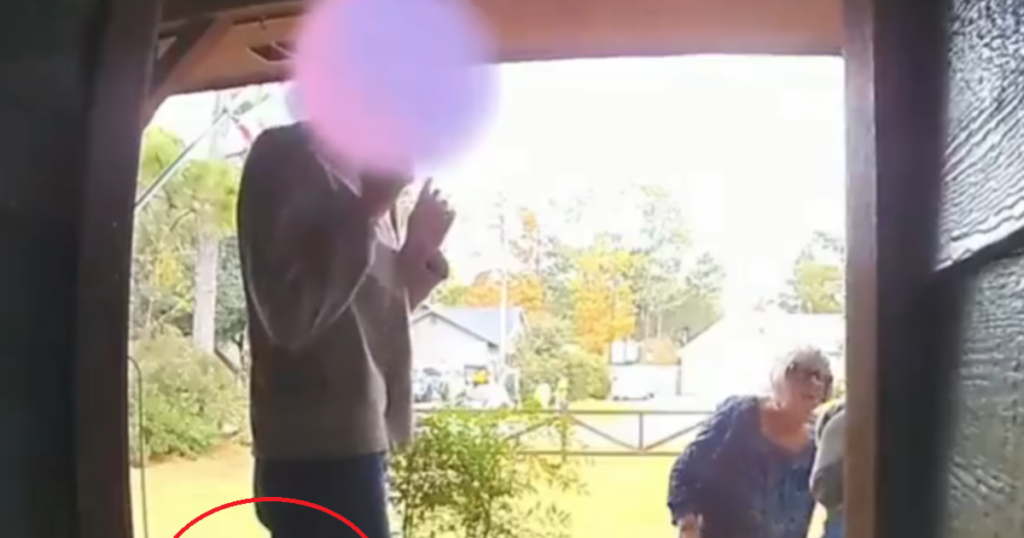In the aftermath of devastating hurricanes impacting several southeastern states, an encounter recorded by a doorbell camera highlights a troubling intersection of personal bias and humanitarian aid. A woman, identified as a donor, approached the home of a hurricane victim to contribute items destined for those affected by the disaster. However, her willingness to donate was marred by her discomfort over a Trump campaign sign displayed in the yard of the recipient. Despite having more items to give, she expressed that her aversion to the former president made her hesitant to continue with her donations, stating, “I’ll have to think about it.” This scenario underscores a troubling trend where political affiliations may influence charitable actions, especially in times of dire need.
This incident raises critical questions about how deeply political divisions have seeped into all aspects of life, including goodwill and compassion. Some observers have expressed incredulity at the notion that a mere yard sign could deter someone from assisting in the recovery of hurricane victims, suggesting that it exemplifies a level of ideological rigidity that prioritizes political beliefs over humanity. Critics have pointed out that this mindset does not foster the spirit of community and support that is essential during crises when collaboration and solidarity are imperative to recovery. The incident suggests that such a divide could even be fostered by broader societal narratives that demonize those holding opposing views.
The implications of this interaction extend beyond a single act of withholding donations; they appear reflective of a wider culture of intolerance towards political opposition. Historical examples of vilification abound, with figures like Hillary Clinton and Joe Biden occasionally labeling supporters of Donald Trump in derogatory terms. These attitudes may contribute to a collective mentality where individuals feel justified in bringing personal grievances into humanitarian situations. One could argue that this is indicative of a deteriorating social fabric where the ability to empathize with others—even those with whom one disagrees—has become increasingly scarce.
The involvement of organizations like the Federal Emergency Management Administration (FEMA) further complicates this landscape. Reports have surfaced alleging that certain FEMA employees acted on biases to avoid providing assistance to homes displaying Trump signs following the hurricanes. These revelations point to a systemic issue wherein personal politics may infiltrate professional responsibilities, jeopardizing essential aid during times of disaster. Congress has investigated these practices, and while FEMA’s leadership claimed that the problematic directives stemmed from a rogue employee, the encounter raises alarming questions about the institution’s overall culture and policies regarding partisan bias in emergency management.
In reaction to these events, political commentators have called for a reassessment of how people engage with one another amid significant political and social divides. The shocking scenario of excluding friends and neighbors from aid based on political beliefs can hinder recovery and healing within affected communities. Critics have suggested that instead of honoring personal biases during crises, a collective ethos of support should prevail—one that focuses on human solidarity rather than political affiliations. This shift may require confronting and dismantling prevailing narratives that foster division, encouraging individuals from all backgrounds to prioritize the well-being of their communities.
Ultimately, the stark contrast between the need for humanitarian aid and the hesitance to provide it due to political identity serves as a wake-up call. It challenges individuals to reflect on their values and the consequences of allowing ideology to supersede compassion. The existing political polarization could undermine recovery efforts, reminding society that the humanitarian impulse must remain at the forefront during trying times. Rather than letting division dictate actions, embracing a unified response to crises might restore some faith in collective action while ensuring that those who need help during natural disasters are not left behind due to conflicting beliefs.

